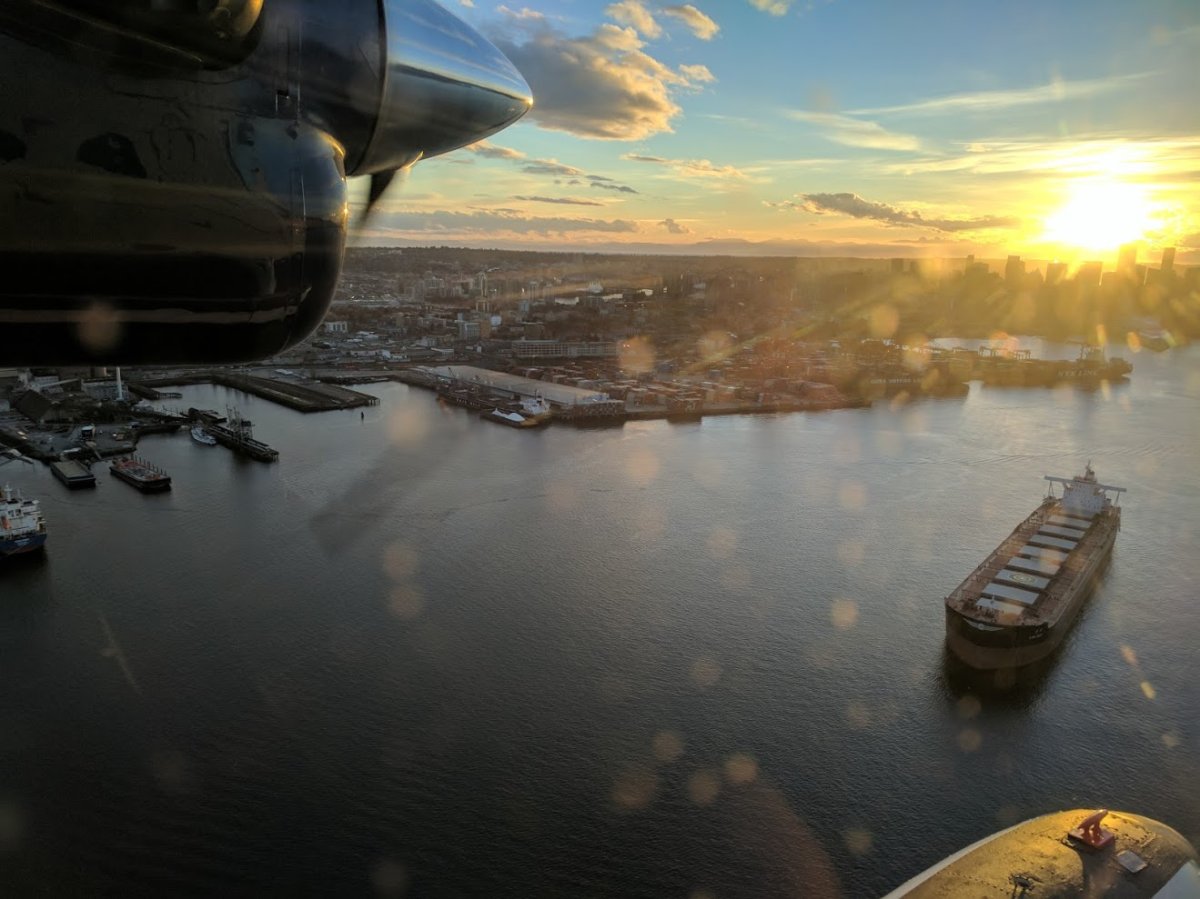The Greater Vancouver Board of Trade (GVBOT) has released its 2018 economic scorecard, and the region has earned a “B.”

Vancouver finished seventh overall out of 20 regions worldwide, climbing two spots from the inaugural ranking in 2016.
The scorecard, which is produced in partnership with the Conference Board of Canada, looks at 38 economic and social categories, including average income, employment, tax competitiveness, housing affordability, public transit, education, income inequality, average commute times and air quality.

On economic measures, the region ranked seventh, up two spots. It scored As for cheap office space and tax competitiveness, though the report warned that second grade could shift downward in the wake of U.S. tax cuts.
However it scored Ds on on after tax income, international conferences and market size.

Get daily National news
One area where there is room to grow was in the “B” grade assessed to port cargo tonnage, said board CEO Iain Black on CKNW’s The Simi Sara Show.
“Half a billion dollars a day floats in and out of that port. It’s really the St. Lawrence Seaway of our country,” he said.
Black said the port has grown 20 per cent in the last five years, with plans to do the same in the coming half-decade.
“But we’re running out of industrial land. We need the federal government and the municipalities to work together to make sure we’ve actually got the land to create those jobs and that economic activity.”
Black said that Greater Vancouver, with its low violent crime rate and clean air generally performed well on social metrics.
The region scored As on democracy, diversity, air quality and homicide rate.
But the region did slip a spot from seventh to eighth, dragged down by rail network quality and housing affordability problems — with only Hong Kong and Sidney having pricier accommodations.
“Greater Vancouver is at risk of becoming an international bedroom/retirement community: a place too expensive to attract investment and retain the needed diverse and talented labour force,” warned the report.
“You’re dealing with the top economists of our country who are not known for making emotional observations,” said Black.
“When I read that, a shiver went up my spine in a very bad way. That would be a terrible thing to happen, and that’s why housing affordability is a part of it, taxation is a part of as well.”
However, Black noted that Greater Vancouver’s slide on social metrics was also partly driven by other cities like Toronto and Calgary improving more quickly.
“We added some measurements in which they do really well, for example the number of women in the workforce as a percentage, Calgary does really well there,” said Black.
“And the number of young people between 25 and 34, a very key indicator for what your economy will look like down the road.”
The report concludes by warning that the region needs to shed its reputation as a low-salary tech market and improve its ability to attract and retain skilled labour. It says the region would benefit from a focus on tax competitiveness, affordability and further deepening its role as a gateway to the Asia-Pacific region.
Overall, of the 20 regions studied, Singapore finished first, Calgary was second, Toronto was sixth, Montreal was 10th, and Miami finished last.














Comments